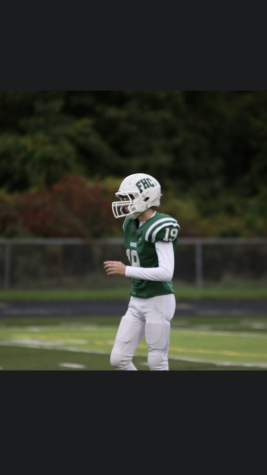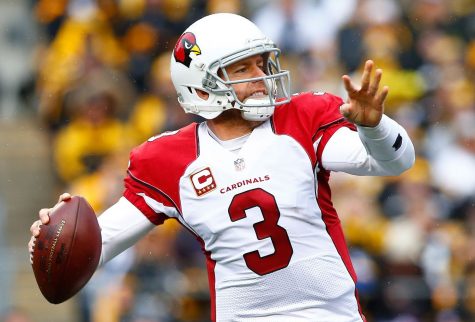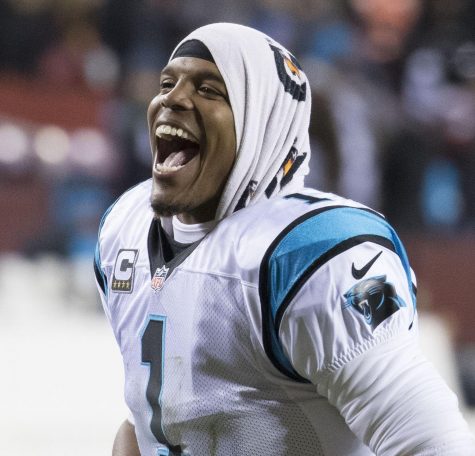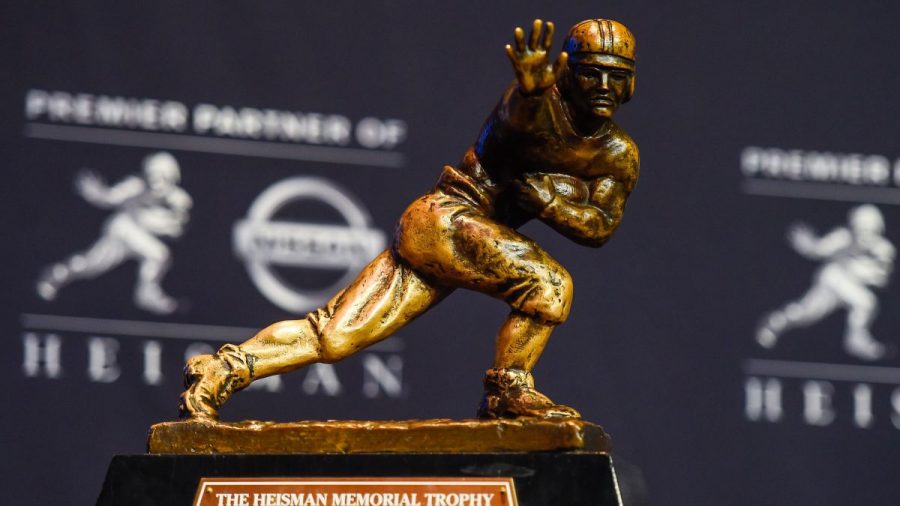Ten years of busts: what happened to the Heisman Trophy winners from 2000-2010

More stories from Mac Boike
May 29, 2022
The revival of Oklahoma. The battle in the Rose Bowl between Texas and USC. And, the Tim Tebow era in Florida. These are just some of the more memorable collegiate football moments of the early 2000s. The main aspect that connects Oklahoma, USC and Florida is one of the best connections that any college football team can have: Heisman Trophy winners. For USC and Oklahoma, they each had multiple Heisman winners in a ten-year span. USC had one of the best backfields, as its running back and quarterback were back-to-back finalists and winners. First, Carson Palmer proved why he would be the future number one pick in the NFL draft after snagging the 2002 Heisman Trophy. Second, in 2004, Matt Leinart had one of the best throwing seasons we have seen from a QB in a long time. In 2005, it would be the speedster Reggie Bush’s opportunity to take over the college world. Unfortunately, Bush received $291,600 and gifts from sports agent Lloyd Lake and his partner Michael Michaels which is a big no-no in the eyes of the NCAA. This debacle ended up with Reggie’s Heisman being vacated, meaning there is no true winner of the 2005 Heisman unless you still count Bush.

For the case of Oklahoma, the Sooners had two very dominant QB’s. The first was Jason White, and his story is more of a cinderella story than anything. In 2001 and 2002, White tore his ACL and had to miss the rest of both seasons. But in 2003, White went on to shock the whole nation by persevering through consecutive anterior cruciate ligament tears and win the first Heisman trophy in Oklahoma football history since Billy Sims in 1978. Fast forward five years and Sam Bradford was the new face of the Sooners football program. 2008 would be Bradford’s year of stardom, as he would go on to win the Heisman by taking home 62% of the first-place votes.
Finally, Tim Tebow is a very familiar name for all college football fans. Known for possibly having one of the best college football careers of all time, Tebow led Florida to two national championships while also winning two SEC Players of the Year, two Maxwell Awards, and most respectively, the 2007 Heisman Trophy.
Similar to the universities, most of these players have something in common. Most of the Heisman winners in this ten-year span turned out to be busts in the NFL and out of the league faster than the blink of an eye. While the title says “Ten years of busts,” some of the players carved out respectable careers but did not really live up to the expectations given to them come draft night.
2000: Florida State QB Chris Weinke
 The new millennium started with the Seminoles having a very successful season. The 28-year-old Chris Weinke lead the Seminoles all the way to the National Championship game in which the Oklahoma Sooners topped FSU by a score of 13-2. Weinke’s age didn’t seem to restrict his Heisman Trophy chances, earning him the title of being the oldest Heisman winner of all time. Weinke’s age seemed to be the biggest factor of why he fell all the way to the 4th round of the 2001 NFL draft; however, with the 106th pick in the draft, the Carolina Panthers found Weinke at the top of its draft board and decided to pull the trigger. Weinke found a home on the Panther’s roster for seven seasons and held 4 records that still stand with the Panthers today. The first two records are something to smile about, as Weinkle holds the records for completions (34) in a game against the Giants in 2006 and a franchise record of 61 pass attempts. In 2001, Weinke made some very noticeable rookie mistakes, though, as he threw for a franchise-record of 19 interceptions while also being sacked 8 times in one game. As a starter, Weinke lost 17 consecutive games for the Panthers. In 2007, Weinke got one last shot in the NFL with a very short stint with the San Francisco 49ers. After that year, Weinke finally decided to call it quits and retire from his career as an on again off again starter. Throughout his time as a retired football player, Weinke has spent his time coaching many different schools around the country, including the prestigious IMG Academy in Florida.
The new millennium started with the Seminoles having a very successful season. The 28-year-old Chris Weinke lead the Seminoles all the way to the National Championship game in which the Oklahoma Sooners topped FSU by a score of 13-2. Weinke’s age didn’t seem to restrict his Heisman Trophy chances, earning him the title of being the oldest Heisman winner of all time. Weinke’s age seemed to be the biggest factor of why he fell all the way to the 4th round of the 2001 NFL draft; however, with the 106th pick in the draft, the Carolina Panthers found Weinke at the top of its draft board and decided to pull the trigger. Weinke found a home on the Panther’s roster for seven seasons and held 4 records that still stand with the Panthers today. The first two records are something to smile about, as Weinkle holds the records for completions (34) in a game against the Giants in 2006 and a franchise record of 61 pass attempts. In 2001, Weinke made some very noticeable rookie mistakes, though, as he threw for a franchise-record of 19 interceptions while also being sacked 8 times in one game. As a starter, Weinke lost 17 consecutive games for the Panthers. In 2007, Weinke got one last shot in the NFL with a very short stint with the San Francisco 49ers. After that year, Weinke finally decided to call it quits and retire from his career as an on again off again starter. Throughout his time as a retired football player, Weinke has spent his time coaching many different schools around the country, including the prestigious IMG Academy in Florida.
2001: Nebraska QB Eric Crouch
The past few years before 2001 for Nebraska were extremely successful seasons. In Lincoln, Eric Crouch was at the helm of the Cornhuskers for a couple of seasons, leading a very successful and efficient offense. In 2001, Crouch was named not just Heisman Trophy winner, but also the Davey O’Brien Award winner, the Walter Camp Award winner, and Big 12 Offensive Player of the Year. Unfortunately, Crouch’s size is what really held him back from becoming an NFL-caliber QB. Crouch stood at just six foot which gave him quite the disadvantage because, at the time, the average NFL lineman stood at six feet four inches. Crouch bounced around the NFL, NFL Europe, the CFL, the AAFL, and the UFL up until the UFL folded in 2012. Crouch is now the running back and special teams coach at Midland University in Nebraska.
 2002: USC QB Carson Palmer
2002: USC QB Carson Palmer
Out of all the players on this list, Carson Palmer is the shining star amongst the rest of the group. After securing the 2002 Heisman Trophy in his most dominant college season, Palmer enjoyed an extensive professional career. Palmer ended his 15 year NFL career as a 3x Pro Bowler, one-time Second-Team All-Pro QB, and a Pro Bowl MVP in 2006. Palmer’s career stats include 46,247 passing yards, 3,941 completions on 6,307 attempts, and a Touchdown-Interception ratio of 294 TDs and 187 picks. Even though these Hall of Fame-worthy stats, Palmer never won an MVP, a Super Bowl, or made it to a Super Bowl.
2003: Oklahoma QB Jason White
As we have mentioned about Jason White’s career before, he remains more of an underdog than anything else. The same year that White won the Heisman, we saw Oklahoma go to the first of its back-to-back championship game appearances. The 2004 BCS Championship game ended in a 21-14 loss, as LSU was crowned the 2004 national champion. A year later, Oklahoma took advantage of its second-straight national championship berth and snagged a championship match-up with USC, a game that Sooner fans probably never want to think about. In the end, the Trojans of USC strangled the life out of Oklahoma in a 55-19 blowout, which meant White ended his college career with a loss. White is one of the three Heisman winners to be unsuccessful in launching an NFL career and now owns several small businesses in Oklahoma.
2004: USC QB Matt Leinart
After having a successful college career that included two first-team All American finishes, two Archie Griffin Awards, and of course, the 2004 Heisman Trophy, Leinart finished his time in Los Angeles in 2005. Just like Palmer, expectations were through the roof for Leinart, as he was selected 10th by the Arizona Cardinals. Leinart spent four years in Arizona, presumably as the backup to Hall of Fame quarterback Kurt Warner. Leinart was handed a chance to be the starter in 2010, but he was benched shortly after because of poor play. For the next four seasons, Leinart bounced around three different teams: the Houston Texans, the Oakland Raiders, and the Buffalo Bills practice squad before finally being out of the league.
2005: USC RB Reggie Bush
Ah, how sweet the highlight tapes of Reggie Bush can be. One of the most glorious and notorious college running backs of all time, Bush lost his Heisman for losing his head. He had no business accepting money from an agent when he was on the way to making millions in the NFL. This did not stop Bush from playing in the NFL, though, because the ceiling was high. In his early NFL career, the New Orleans Saints made heavy use of Bush’s talents, as these two went on to win the 2009 Super Bowl. 2009 was a season that also saw Bush be named First-Team All-Pro. Besides being named to the All-Rookie team in 2006, Bush has no other monumental accolades that make his NFL career stand out. After splitting off from the Saints in 2010, the next six seasons would see Bush find four new suiters for his Sundays. The Miami Dolphins, Detroit Lions, San Francisco 49ers, and Buffalo Bills all gave Bush chances to prove his stardom, but he seemed to be a shell of his former college self.
2006: Ohio State QB Troy Smith
Ohio State seems to always have very successful quarterbacks, but almost all of them seem to bust once they reach Sundays. Smith’s 2006 season saw him win the Heisman Award, the Chic Harley Trophy, the Walter Camp Award, the Davey O’Brien Award, the Archie Griffin Award, and the Associated Press Player of the Year. Smith was drafted in the 5th round by the Baltimore Ravens, but he only spent three seasons with the team before being cut. Smith then went on to spend time with the 49ers, the Omaha Nighthawks (UFL), the Pittsburgh Steelers, and Montreal Alouettes (CFL) before being done with professional football.
2007: Florida QB Tim Tebow
For those of you who like to follow my articles, I have already covered the whole story of Tim Tebow and his fall from stardom in the NFL. He did play with the Broncos for a few years and even lead one of the best playoff performances of all time in an upset win of the Steelers, but Tebow just was not right for the professional game and was out of the NFL at a young age of 27.
 2008: Oklahoma QB Sam Bradford
2008: Oklahoma QB Sam Bradford
Bradford is the second player on this list to be selected with the number one pick in the NFL draft. After causing complete chaos in the college football world with Oklahoma, Bradford took home the 2008 Heisman Trophy. Bradford would go on to be selected number one by the Saint Louis Rams but injuries would be the downfall of Bradford. No matter how hard he tried to bounce back, Bradford’s injuries seemed to be just too much damage to his legs after tearing his ACL twice. Bradford was given chances to bounce back in the NFL with three different teams, but he decided to retire at the age of 30.
2009: Alabama RB Mark Ingram
After taking home the Heisman Trophy in 2009 while also leading Alabama to a BCS National Championship, Ingram was selected 28th by the New Orleans Saints to improve the backfield as Reggie Bush had turned out to not be star material. Being a first-round pick can put a lot of pressure on a guy, but Ingram has handled that pressure well enough yet has not lived up to the expectations of being a first-round guy. He has only made three Pro Bowls in his 11-year career and has no other accolades to account for. Ingram has always been a decent NFL running back but has only eclipsed 1,000 yards three times and has only gotten 10+ rushing touchdowns twice in his career. Ingram is now on his last leg in the NFL as he has signed a one-year deal with the Houston Texans.
2010: Auburn QB Cam Newton 
Last on our list is one of the more prominent college football players of all-time in Cam Newton. Newton transferred to Auburn after spending his early college days as Tim Tebow’s backup at Florida. Super Cam won a Natty with Auburn over Oregon in 2011 which was the same year he won the Heisman Trophy. Out of all players on this list, Newton has had the best NFL career. From 2011-2019, Newton played QB for the Carolina Panthers after they spent the number one pick on him. Newton has made three Pro Bowls, including his 2015 Pro Bowl finish. That 2015 season would be the best of Newton’s Career. He won both the NFL MVP and Offensive Player of the Year, while also leading the Panthers to a Super Bowl 50 appearance that ended in a loss to the Denver Broncos in Peyton Manning’s last game. The Panthers fell apart in 2015 and the offensive line failed to protect Newton properly, as he would continuously take hit after hit like a boxer in the eighth round. The wear and tear on his body forced him to miss a lot of the last few seasons Newton spent with the Panthers before finally being released. Newton spent last season with the new-era New England Patriots as Tom Brady’s replacement. Newton finished last in both passing yards and passing touchdowns among starting quarterbacks last season, but the Patriot’s Offense remained one of the worst in the league. The Patriots have now reloaded its offense after signing tight ends Jonnu Smith and Hunter Henry in free agency this off-season in hopes to help Newton run a much more efficient offense while he is on his one-year contract.

Mac Boike is a senior at FHC entering his second year in the Sports Report. Mac enjoys playing lacrosse and football. He also enjoys playing box lacrosse...



